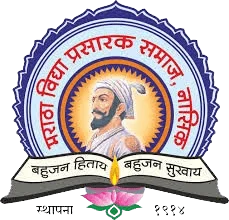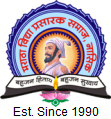Best Practices
- Poster & model making competition for 1stMBBS students –
Objectives –
1) To increase active learning in students and induce self – learning.
2) To increase the active participation of students in learning Physiology.
3) To channelize their creativity in designing a task, working on a task and
evaluating it.
4) To induce the spirit of team work.
5) To sharpen their creativity and critical thinking.
Context :
The poster competition and Model making competition has been religiously conducted in Department of Physiology since past five years. These are the innovative practices designed and implemented by the department to increase the ‘student – student’ and ‘student – Teacher’ interaction. All the students participate with full enthusiasm and zeal..
Practice :
Both these competitions are student centered practices, enforcing self-directed learning and peer – assisted learning in a creative manner.
The students prepare colorful self – explanatory posters for the poster – making completion relevant to the topic declared – eg – “Dr. Google Vs Medical Dr.” in 2022, “Doctor – A COVID warrior” in 2021, “Basics of Physiology” in 2020 and many more.
The students create working as well as 2 – D models to explain the Physiological mechanisms of various functions in human body. The novel ideas and creativity of the students increases leaps and bounds every year.
The active participation & group activity helps the students to work as a team which is essential in the medical fraternity. The creativity inculcated in students will help them in building their future. Moreover the main objective of curriculum enhancement is also achieved in a stress free environment.
Evidence of success
The participation of students have gradually increased over years and we now witness 100% participation of students in both the competitions. In the year 2019, Department had organized a state level model making competition which also received 11 entries from various colleges all over the state making it a successful event.
Problems encountered & resources required
Initial challenge was student participation which was soon overcome when the students themselves realized the effectiveness of the innovative Teaching – learning method.
2) Stress – Relaxation practice –
To reduce the stress and increase the concentration of the students during the T- L sessions the department has started this year with an innovative practice of 2 min stress – relaxation meditation before every Physiology lecture session.
3) Uninterrupted interactive teaching of Basic Physiology and Applied Physiology –
All faculties are well trained in medical education technology & implement various participatory and interactive teaching techniques in regular classroom teaching. Project-based learning is encouraged. Student support & progression is ensured by constant motivation by faculty. Even in the pandemic of Covid-19, we continued to connect to our students through various online teaching platforms.
4) Guiding students in Research –
All the medical students are the future researchers. Students are trained every year in research methodology & guided for research in basic sciences. Every year students guided by the faculty of Department of Physiology are selected for ICMR – STS projects/ MUHS Avishkar.
5) Involvement in Community outreach programme –
Department of Physiology contributes to society by various outreach activities for well being of different groups such as training of police personnel, nurses and the general population. Department has trained people for disaster preparedness and Sanjivani-basic life support skills training for Kumbhmela in Nashik & Ujjain. Health education is imparted to adolescent school children too.
6) Lab services –
Neurophysiological diagnostic services are offered by department of Physiology – eg. NCV, EMG, VEP, BERA, etc.
Autonomic function lab, respiratory function lab, Cardiovascular risk profile analyzer are utilized by staff members & students for research activities.
7) Yoga Practice –
The well – being of the student’s mind and body and their holistic development is ensured by conducting special training sessions every year in various ASANAS and Meditation practices
8) Extra- curricular practices –
The departmental faculty members play active role in organizing trips, treks, cultural events through the VPMC Art circle.

